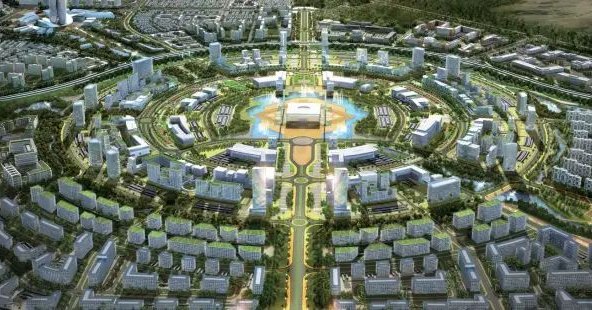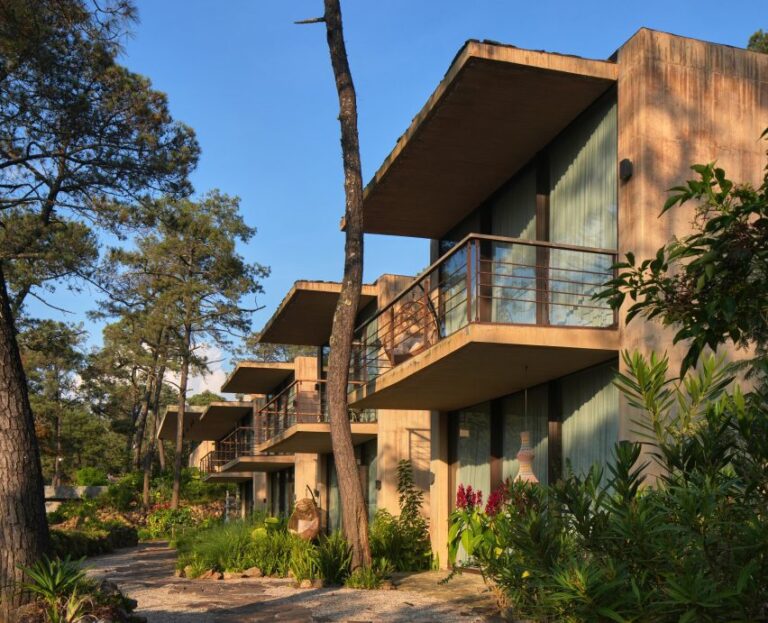South Saad Al Abdullah City Project in Kuwait: A Step Toward Integrated Housing
The South Saad Al Abdullah City Project is one of Kuwait’s largest housing initiatives, designed to address the growing demand for residential units and provide a comprehensive living environment. This article explores the project’s details, including its location and size, design and infrastructure, implementation timeline, and executing companies. It also covers planned facilities and services, offers an analysis from the “ArchUp” perspective with some critiques, and concludes with a FAQ section and a summary table.


Project Location and Size
Located southwest of Kuwait City, the South Saad Al Abdullah City Project spans approximately 59 square kilometers. It aims to develop between 25,000 and 40,000 housing units, making it one of the most significant residential projects in Kuwait. The strategic location was chosen to expand housing options away from the crowded capital while ensuring accessibility to essential services.
Design and Infrastructure
The city is designed based on modern urban planning standards, with the goal of becoming Kuwait’s first smart city. The design incorporates a variety of residential units, including plots and homes with contemporary architectural styles, alongside commercial and service facilities. Key features include:
- Shopping centers, restaurants, and cafés.
- Mosques and religious centers.
- Advanced road networks.
- Electrical substations and irrigation tanks.
The project emphasizes smart technologies for resource management, such as intelligent lighting systems and waste management, to enhance efficiency and promote environmental sustainability.
“Through the South Saad Al Abdullah Project, we aim to provide a sustainable residential environment that meets citizens’ needs and enhances quality of life.”
— Public Authority for Housing Welfare, Official Website (www.pahw.gov.kw)

Contracts and Executing Companies
In March 2025, Kuwait’s Public Authority for Housing Welfare signed contracts worth 261.7 million Kuwaiti Dinars (approximately $847.47 million) with local and international companies to develop the city’s infrastructure. Notably, a major international company secured two contracts valued at $557 million for infrastructure works. These contracts reflect Kuwait’s commitment to leveraging global expertise to ensure high-quality execution.
| Element | Details |
|---|---|
| Contract Value | 261.7 million Kuwaiti Dinars ($847.47 million) |
| Executing Companies | Local and international firms, including a Chinese group |
| Scope of Work | Infrastructure (roads, electricity, water networks) |
Timeline and Completion Progress
The infrastructure of the project is expected to be completed by November 2027. As of November 2024, the project had achieved a completion rate of 13.042%, indicating steady progress in line with the planned timeline. The Public Authority for Housing Welfare closely monitors the implementation phases to ensure adherence to deadlines.


Planned Facilities and Services
The project aims to create a fully integrated urban environment, offering:
- Advanced Road Networks: To facilitate movement within the city and to Kuwait City.
- Electrical Substations: To ensure a sustainable power supply.
- Irrigation Tanks: To support green spaces and sustainable agriculture.
- Commercial and Recreational Facilities: Including shopping centers and public parks.
These facilities are designed to improve residents’ quality of life and provide all necessary amenities within the city.
ArchUp Perspective: Analysis and Critiques
From the “ArchUp” perspective, the South Saad Al Abdullah City Project represents an ambitious step toward addressing Kuwait’s housing needs. The concept of a smart city aligned with global sustainability trends is commendable. However, several points warrant attention:
- Climatic Challenges: Kuwait’s extreme heat necessitates innovative architectural solutions to reduce energy consumption. While the project mentions smart technologies, there is limited detail on sustainable cooling solutions or insulating materials.
- Cost vs. Quality Balance: Large contracts with international firms may ensure quality but could increase costs, raising questions about affordability for residents.
- Social Integration: The city needs a clear plan to foster community interaction, such as cultural centers or community events, which the project has not emphasized sufficiently.
Despite these critiques, the project holds significant potential to serve as a model for modern cities in the region if these challenges are addressed.

Frequently Asked Questions (FAQ)
What is the South Saad Al Abdullah City Project?
It is a major housing project in Kuwait aiming to build 25,000 to 40,000 residential units with integrated facilities and smart design.
When will the project be completed?
The infrastructure is expected to be completed by November 2027.
What facilities will the city include?
It will feature road networks, electrical substations, irrigation tanks, shopping centers, and recreational facilities.
What is the current completion rate?
As of November 2024, the completion rate is 13.042%.
Summary Table
| Element | Details |
|---|---|
| Location | Southwest of Kuwait City |
| Area | 59 square kilometers |
| Number of Housing Units | 25,000 to 40,000 units |
| Expected Completion Date | November 2027 |
| Completion Rate (Nov 2024) | 13.042% |
| Contract Value | 261.7 million Kuwaiti Dinars ($847.47 million) |
| Planned Facilities | Roads, electrical substations, irrigation tanks, commercial & recreational facilities |
The South Saad Al Abdullah City Project embodies a forward-thinking vision to meet Kuwait’s housing demands while prioritizing sustainability and modern technology. By addressing the highlighted challenges, it has the potential to become a benchmark for smart cities in the region.







